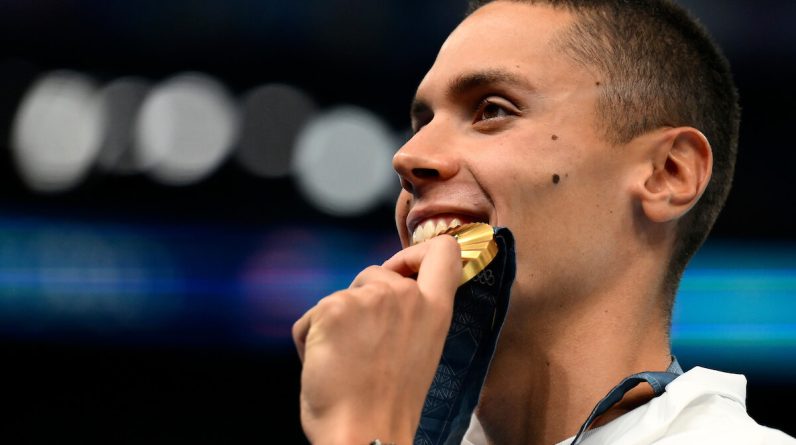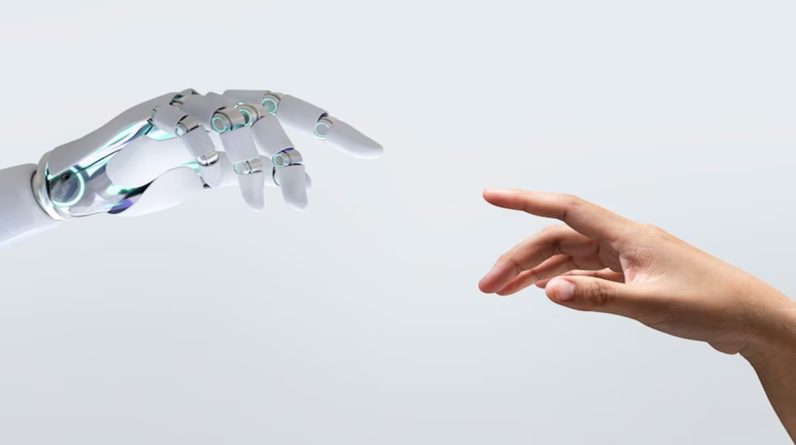Elon Musk, renowned entrepreneur and CEO of Tesla, recently shared his profound insights on the future of artificial intelligence (AI). In a captivating interview on X Spaces, Musk discussed a wide range of topics, including AI advancements, space exploration, and Tesla’s expansion into the Indian automotive market.
One of the most intriguing statements made by Musk was his belief that by the end of next year, AI will surpass the intelligence of any single human being. He went on to speculate that within five years, the collective computational power of AI will exceed that of the entire human population. These claims shed light on the exponential growth and potential of AI technology.
Musk expressed his optimism about the future capabilities of AI, mentioning that xAI plans to release Grok 1.5 by May. According to Musk, this new iteration of AI technology will surpass OpenAI’s ChatGPT-4. However, it is worth noting that Musk’s projected timelines are often met with a certain degree of skepticism, considering previous delays and miscalculations.
Beyond discussing AI advancements, Musk also emphasized the need for regulatory oversight in the AI sector. He acknowledged that the rapid progress of AI technology has outpaced regulatory agencies’ ability to keep up. Musk cited Google’s Gemini AI as an example of AI being programmed to be too politically correct, potentially leading to unintended consequences. He stressed the importance of training AI systems to prioritize truthfulness, rather than conforming to certain social or political agendas.
While Musk acknowledges the risks associated with AI, he remains optimistic about its potential. He considers AI to be a crucial factor in shaping the future, but with immense power comes the necessity for responsible development and oversight. Musk’s concerns about AI have been evident in the past, as he has referred to it as a potential “civilizational risk” and engaged in discussions with world leaders on the subject.
In July of last year, Musk launched xAI as a competitor to OpenAI, aiming to further innovation in the field. The company’s groundbreaking product, Grok, was introduced in November. In February of this year, Musk filed a lawsuit against OpenAI for allegedly deviating from its non-profit mission. Most recently, xAI made Grok’s model weights open-source, indicating a commitment to transparency and collaboration within the AI community.
Elon Musk’s insights into AI’s future paint a compelling picture of what lies ahead. As AI technology continues to evolve, society must strike a delicate balance between harnessing its immense potential and implementing safeguards to address its risks. The future of AI promises to be both awe-inspiring and thought-provoking.
Frequently Asked Questions (FAQ)
1. What did Elon Musk say about the future of AI?
Elon Musk predicts that by the end of next year, AI will be more intelligent than any individual human. He also believes that within five years, the collective computational power of AI will surpass that of the entire human population.
2. What are Musk’s thoughts on the regulation of AI?
Musk emphasizes the need for a regulatory division to monitor the rapid growth of the AI sector. He acknowledges that the current pace of AI development surpasses regulatory capacities. Musk also warns against programming AI to be excessively politically correct, citing potential risks and unintended consequences.
3. What is xAI and its significance?
xAI is a company launched by Elon Musk to compete with OpenAI in the field of AI development. They introduced Grok, a groundbreaking AI product, and have recently made its model weights open-source, showcasing their commitment to transparency and collaboration in the AI community.
4. What are the risks associated with AI mentioned by Musk?
Musk considers AI to be a potential “civilizational risk” and urges responsible development and oversight. He raises concerns about AI having excessive power, leading to issues such as programmed enforcement of diversity or the elimination of certain demographics based on predefined algorithms.
5. How has Musk’s previous predictions and claims been received?
Musk’s projections and timelines are met with some skepticism due to past delays and miscalculations. It is important to approach his statements with caution, considering the unpredictability of technological advancements and the challenges in meeting ambitious goals.
The AI industry has been experiencing rapid growth and is expected to continue expanding in the coming years. According to market forecasts, the global AI market size is projected to reach $733.7 billion by 2027, with a compound annual growth rate of 42.2% from 2020 to 2027. This growth is driven by advancements in technology, increasing adoption of AI in various industries, and the growing demand for automation and data-driven decision making.
One of the key issues related to the AI industry is the ethical and regulatory considerations surrounding AI development and deployment. As AI technologies become more powerful and pervasive, there is a growing concern about potential risks and unintended consequences. Elon Musk’s emphasis on the need for regulatory oversight highlights the importance of addressing these concerns to ensure responsible and safe AI development.
Another issue is the potential impact of AI on the job market. While AI has the potential to automate repetitive and mundane tasks, leading to increased productivity and efficiency, there are concerns about the displacement of human workers. It is important for businesses and governments to actively manage this transition by implementing retraining programs and creating new job opportunities that align with the evolving needs of the AI-driven economy.
In terms of the automotive industry, Tesla’s expansion into the Indian market is a significant development. India is one of the world’s largest automobile markets, and Tesla’s entry has the potential to disrupt the market and accelerate the adoption of electric vehicles in the country. The Indian government has been actively promoting electric mobility through various incentives and policies, which further creates opportunities for companies like Tesla to gain a foothold in the market.
Overall, the future of AI holds great promise, but there are also important considerations and challenges that need to be addressed. It is crucial for stakeholders, including governments, businesses, and the AI community, to work together to ensure responsible and beneficial AI development and deployment.
For more information on the AI industry and related topics, you can visit the following links:
– McKinsey – Global AI Survey
– Deloitte – Machine Learning and Automation Report
– World Economic Forum – Shaping the Future of Technology Governance





